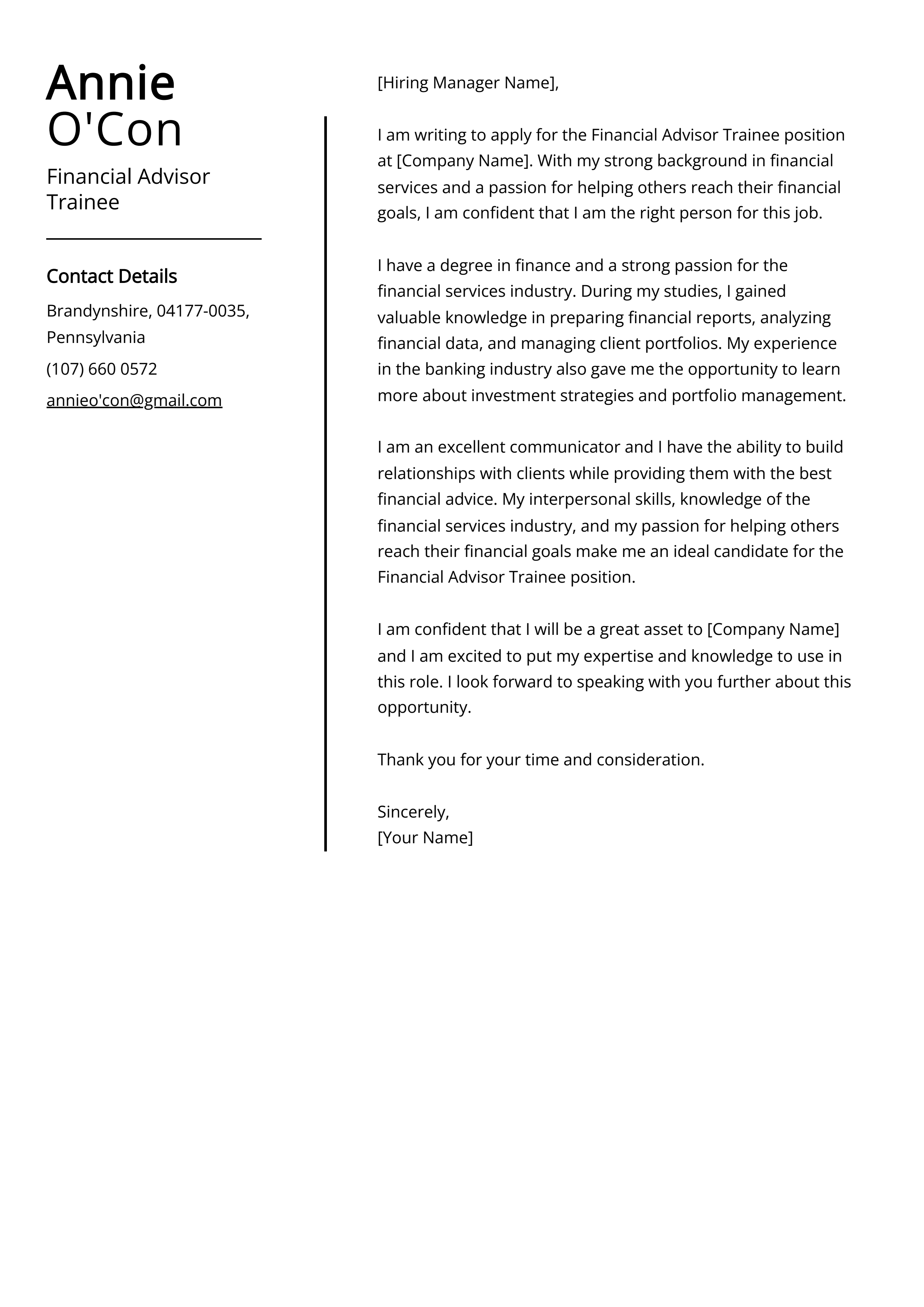Yes, financial advisor can be a good career choice if you are passionate about finance and enjoy helping people manage their money wisely. As a financial advisor, you can provide valuable guidance and support to individuals and businesses in making sound investment decisions.
This career offers the opportunity to build strong relationships with clients and make a positive impact on their financial well-being. With the potential for high earning potential and the satisfaction of helping others achieve their financial goals, financial advising can indeed be a rewarding and fulfilling career choice.
Additionally, by staying knowledgeable about market trends and investment strategies, you can continue to grow and succeed in this dynamic and ever-evolving field.
Exploring The Financial Advisor Career
Role And Responsibilities
A financial advisor plays a crucial role in helping individuals and organizations manage their finances effectively. Their primary responsibility is to provide expert guidance and advice on financial matters. This involves assessing clients’ financial goals, developing personalized financial plans, and recommending appropriate investment strategies.
Financial advisors also monitor the performance of clients’ investments and make adjustments as needed. They stay updated on market trends and economic developments to ensure clients are making informed decisions. Additionally, they may offer advice on areas such as retirement planning, tax strategies, insurance, and estate planning.
Skills And Qualifications
Becoming a successful financial advisor requires a combination of technical skills, interpersonal abilities, and industry knowledge. While a specific degree is not always required, having a background in finance, economics, or business is advantageous.
Some key skills and qualifications for a financial advisor include:
- Strong analytical skills to evaluate financial data and make accurate predictions.
- Excellent communication skills to explain complex financial concepts in a clear and concise manner.
- Interpersonal skills to build trust and establish long-term relationships with clients.
- Ability to work with numbers and perform calculations quickly and accurately.
- Knowledge of financial products, investment strategies, and relevant laws and regulations.
- Good problem-solving abilities to address clients’ financial challenges effectively.
- Attention to detail to ensure accuracy in financial planning and documentation.
Apart from these skills, successful financial advisors are also self-motivated, ambitious, and driven to help their clients achieve financial success.
In conclusion, pursuing a career as a financial advisor can be a fulfilling choice for individuals with a passion for finance and a desire to assist others in achieving their financial goals. With the right skills, qualifications, and dedication, one can thrive in this competitive field and make a positive impact on the lives of clients.
Advantages Of Being A Financial Advisor
Considering a career as a financial advisor can be a rewarding and lucrative decision that offers a multitude of benefits. The role of a financial advisor provides individuals with the opportunity to make a positive impact on their clients’ lives by helping them achieve their financial goals while also offering a high earning potential and the ability to build a successful career.
High Earning Potential
Financial advisors have the potential to earn a substantial income through commissions, fees, and bonuses as they aid their clients in managing their finances. This career path offers the ability to increase earnings through the acquisition of new clients.
Helping Clients Achieve Financial Goals
As a financial advisor, you have the privilege of guiding your clients toward their financial aspirations. This involves creating personalized strategies to help them save for retirement, purchase a home, fund their children’s education, and more, ultimately contributing to their financial security and well-being.
Challenges Faced By Financial Advisors
Financial advisors play a crucial role in helping individuals and businesses manage their finances, plan for the future, and achieve their financial goals. However, like any career, the role of a financial advisor comes with its fair share of challenges. Understanding and navigating these challenges is essential for anyone considering a career in this field.
Dealing With Market Volatility
Financial advisors often face the daunting task of navigating through market volatility. Market fluctuations can have a significant impact on clients’ investments and financial plans. Advisors must possess the expertise to counsel clients during turbulent market conditions, instilling confidence and guiding them through the uncertainties.
Maintaining Client Relationships
Building and maintaining client relationships is another challenge faced by financial advisors. Establishing trust and rapport with clients, understanding their needs, and providing personalized financial guidance are integral to sustaining long-term client relationships. This requires strong communication skills, empathy, and the ability to adapt to each client’s unique financial situation.
Path To Becoming A Financial Advisor
If you have an interest in finance and enjoy helping others achieve their financial goals, a career as a financial advisor might be a perfect fit for you. With the right education, certifications, and licenses, you can embark on a fulfilling and lucrative career in this field.
Educational Requirements
To become a financial advisor, you will typically need a bachelor’s degree in a relevant field such as finance, accounting, economics, or business. This coursework will provide you with a solid foundation in financial principles, investment strategies, and risk management.
During your studies, it is beneficial to take elective courses focused on personal finance and investment planning. These courses will equip you with the knowledge needed to assess your clients’ financial situations and develop appropriate strategies to help them achieve their goals.
Certifications And Licenses
In addition to a bachelor’s degree, financial advisors are required to obtain certain certifications and licenses to practice. The most recognized certification in the field is the Certified Financial Planner (CFP) designation. To achieve this certification, you must meet specific educational requirements, pass a rigorous examination, and gain relevant work experience.
Beyond the CFP designation, there are other certifications you can pursue based on your area of specialization. These include the Chartered Financial Analyst (CFA) designation for investment management and the Certified Investment Management Analyst (CIMA) designation for advanced investment advisory skills.
Depending on the services you offer, you may also need to obtain licenses specific to your location and the financial products you recommend. For example, if you plan to sell securities, you will need to pass the Series 7 exam administered by the Financial Industry Regulatory Authority (FINRA).
Summary
Becoming a financial advisor requires a solid educational foundation in finance, with a bachelor’s degree in a relevant field. Additionally, certifications such as the CFP, CFA, and licenses like the Series 7 exam may be necessary to practice in this field. By completing the necessary education and obtaining the appropriate certifications and licenses, you can pave your way toward a rewarding career as a financial advisor.
Job Market And Demand
Considering a career as a Financial Advisor? Let’s delve into the Job Market and Demand to understand the current trends and job outlook in this field.
Current Trends
The Financial Advisor industry is experiencing steady growth, with a high demand for professionals.
Job Outlook
Employment opportunities for Financial Advisors are projected to increase substantially in the coming years.

Credit: www.ebay.com
Work Environment And Schedule
Financial Advisor is a dynamic career with a flexible work environment and schedule.
Typical Day-to-day Tasks
Financial advisors assess clients’ financial situations, provide advice, and develop strategies to meet their goals.
They analyze data, research investment opportunities, and stay updated on market trends.
Advisors also communicate with clients, prepare reports, and monitor financial performance regularly.
Balancing Work And Personal Life
- Financial advisors can often set their own hours and work remotely, allowing for a better work-life balance.
- They may need to work evenings or weekends to accommodate client schedules.
- It’s essential to prioritize self-care and time management to avoid burnout.
Final Thoughts On The Financial Advisor Career
Considering the demand for financial advisors and the potential for a lucrative income, pursuing a career as a financial advisor could be a favorable choice for individuals with a strong aptitude for finance and strategic planning. It offers the opportunity to help others manage their finances and achieve their financial goals, while also presenting the potential for a promising and fulfilling career.
The financial advisor career can be a rewarding choice for individuals who have a keen interest in finance and helping others achieve their financial goals. However, before embarking on this path, it is essential to conduct a thorough self-assessment and carefully consider whether this career aligns with your skills, personality, and long-term aspirations.
Self-assessment And Decision Making
Before deciding whether to pursue a career as a financial advisor, it is crucial to assess your skills, strengths, and interests. Reflect on your aptitude for finance, analytical thinking, problem-solving abilities, and communication skills. Evaluate whether you enjoy building relationships with clients, researching market trends, and staying up-to-date with financial news.
Additionally, consider your long-term goals and how the financial advisor career can help you achieve them. Do you aspire to work in a fast-paced industry? Are you excited about the opportunity to continuously learn and grow in your profession? These introspective questions will guide your decision-making process.
Tips For Success In The Field
Once you’ve made the decision to become a financial advisor, here are some essential tips to ensure success in the field:
- Educate Yourself: Continuously expand your knowledge and skills through formal education, industry certifications, and professional development programs. Stay informed about market trends, investment strategies, and regulatory changes.
- Develop Strong Communication Skills: Effective communication is key in building trust with clients, understanding their needs, and explaining complex financial concepts in simple terms. Hone your presentation, listening, and interpersonal skills.
- Build a Network: Cultivate relationships within the finance industry to expand your professional network. Attend industry events, join associations, and seek mentorship opportunities to learn from experienced financial advisors.
- Provide Personalized Advice: Tailor your financial advice to each client’s unique circumstances, goals, and risk tolerance. Focus on delivering personalized solutions and consistently exceeding client expectations.
- Stay Ethical: Uphold high ethical standards, always act in the best interest of your clients, and comply with industry regulations. Transparency, honesty, and integrity are essential qualities of a successful financial advisor.
Becoming a financial advisor can be a fulfilling career choice if you possess the necessary skills, passion for finance, and desire to help others secure their financial future. By thoroughly evaluating your strengths, and following these tips for success, you can embark on a rewarding journey in the financial advisor industry.

Credit: www.visionretirement.com

Credit: resumaker.ai
Frequently Asked Questions On Is Financial Advisor A Good Career Choice For Me
Am I Suitable To Be A Financial Advisor?
Yes, if you enjoy working with numbers, have strong communication skills, and are passionate about helping others achieve their financial goals. Obtaining relevant qualifications and gaining experience in the field will also be beneficial for your career as a financial advisor.
What Are The Cons Of Being A Financial Advisor?
The cons of being a financial advisor include intense competition, the need for constant learning, long hours, high stress levels, and the responsibility of managing clients’ investments.
How Hard Is It To Succeed As A Financial Advisor?
Succeeding as a financial advisor can be challenging due to fierce competition and demanding clients. However, with dedication and building strong relationships, success is achievable.
What Type Of Person Should Be A Financial Advisor?
A financial advisor should be detail-oriented, analytical, trustworthy, and possess excellent communication skills. It’s essential to have a strong understanding of finance and be able to provide sound advice to clients.
How Can A Financial Advisor Benefit My Career Growth?
Financial Advisors provide guidance on investing, saving, and retirement planning, enhancing your financial knowledge.
Conclusion
Choosing a career as a financial advisor can be a wise decision for those who are passionate about helping others navigate the complex world of finance. By combining your knowledge of investments, taxes, and financial planning with excellent communication skills, you can build a successful and rewarding career.
With the increasing demand for professional financial advice, there is ample opportunity for growth and advancement in this field. Consider your strengths, interests, and values when making this decision, and seek appropriate education and certification to establish yourself as a competent financial advisor.
The possibilities are endless in this exciting profession.


